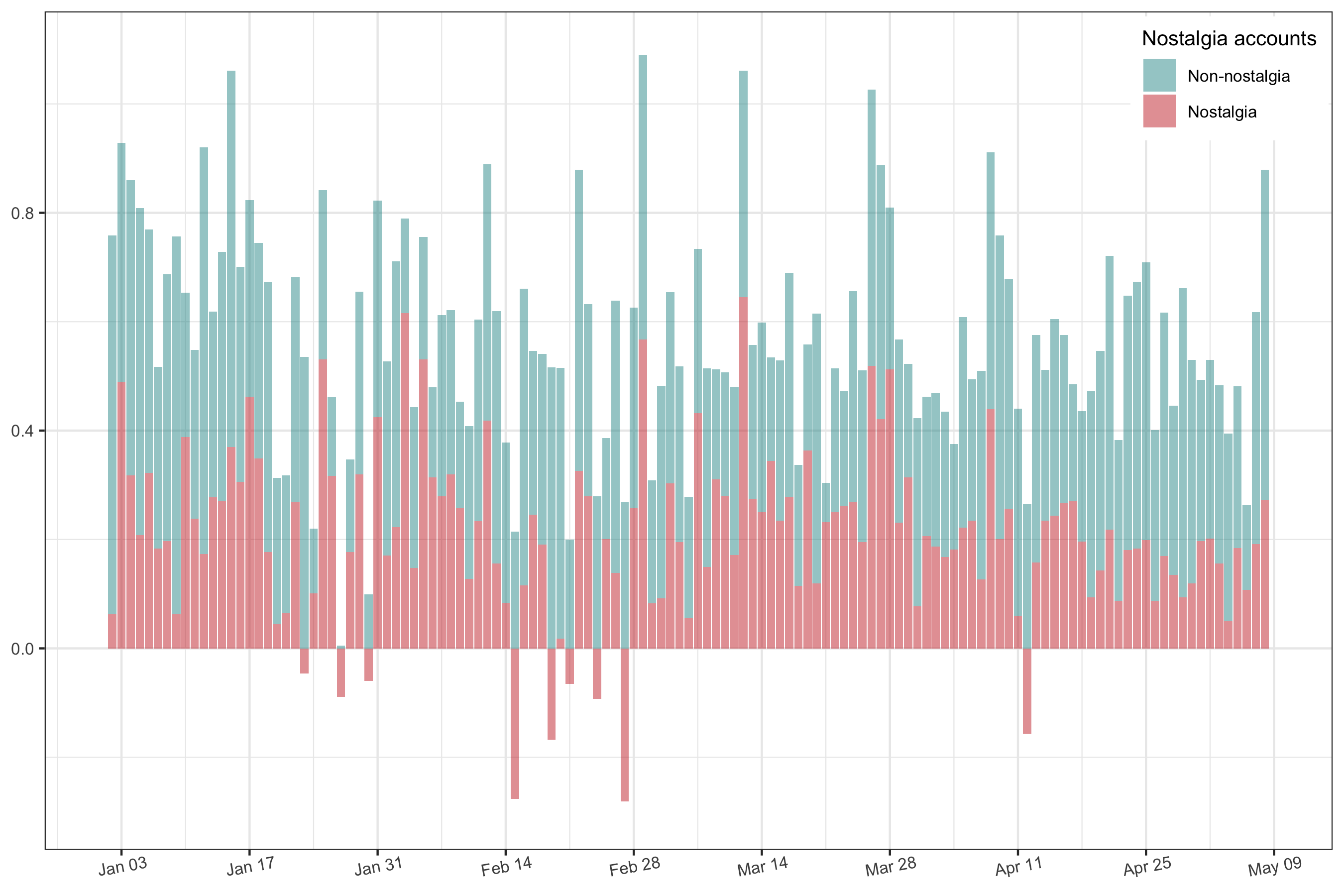Mnemonic Politics among Philippine Voters: A Social Media Measurement Approach
How do we measure nostalgic sentiment for former dictatorships among voters in national democratic elections? In this paper, we use a social media approach to identify nostalgic rhetoric on Twitter, leveraging the Philippine presidential election in May 2022. We conduct text-as-data analysis and investigate nostalgia for Ferdinand Marcos Sr. among supporters of the namesake son, Marcos Jr. Our approach, which combines machine learning and human labeling, identifies 8% of tweets about Marcos Jr. as having nostalgic sentiment. Using these nostalgic tweets as measure for authoritarian nostalgia, we find that accounts that express negative sentiment are more likely to use nostalgic rhetoric. We further demonstrate that provinces with high economic growth under President Rodrigo Duterte and with high support for Marcos Jr. in the previous election are more likely to post nostalgic tweets. Combined results from this paper provide among the first empirical analysis of large-scale data on how voters discuss and distribute nostalgic rhetoric for a former dictatorship.

